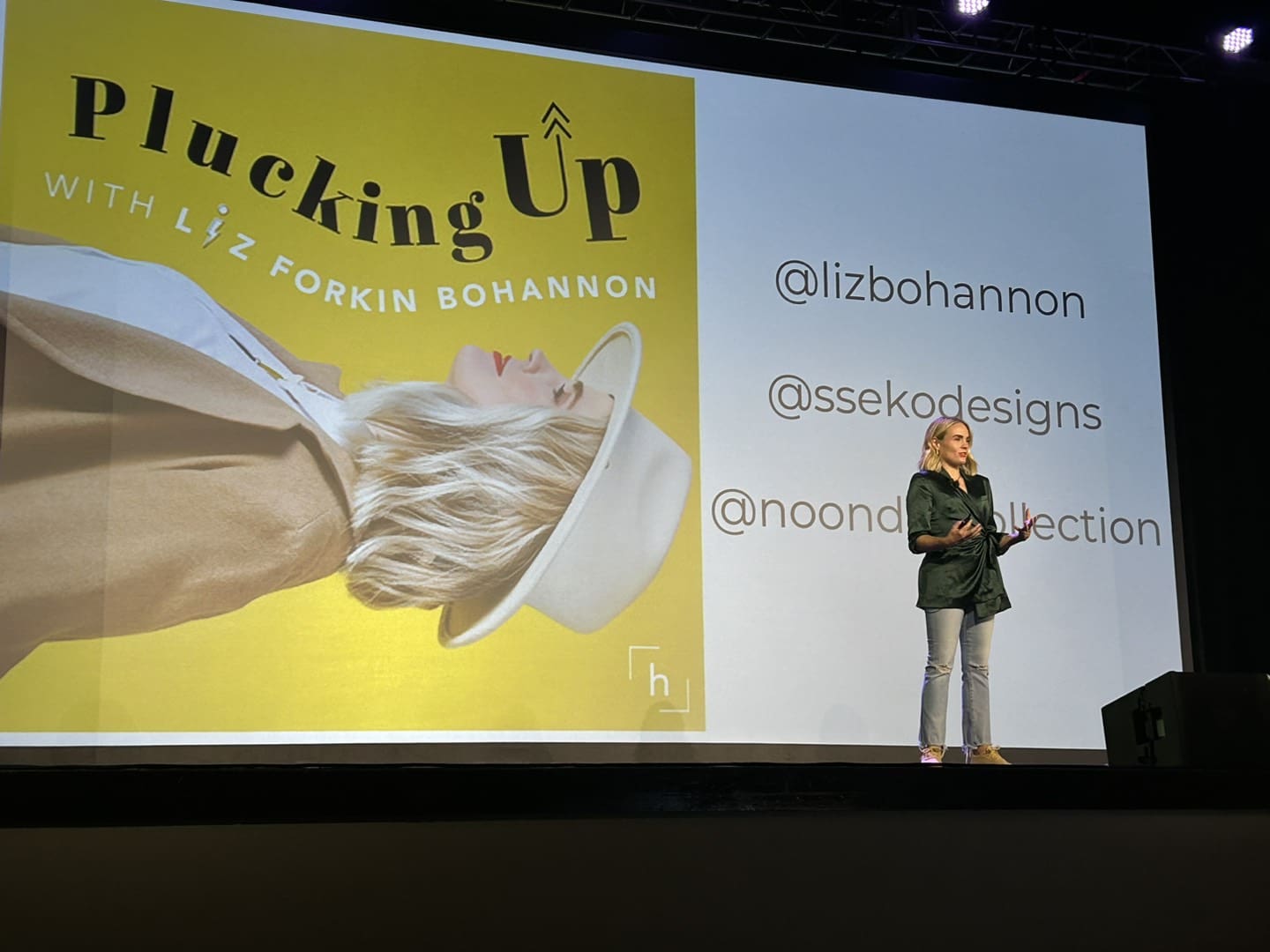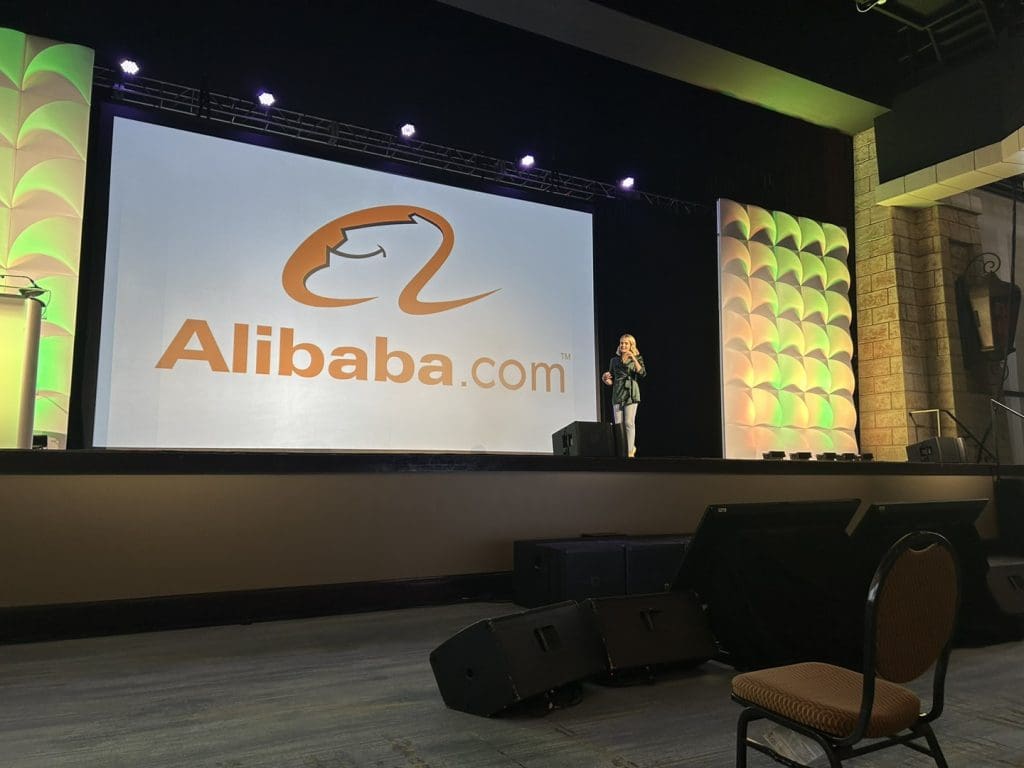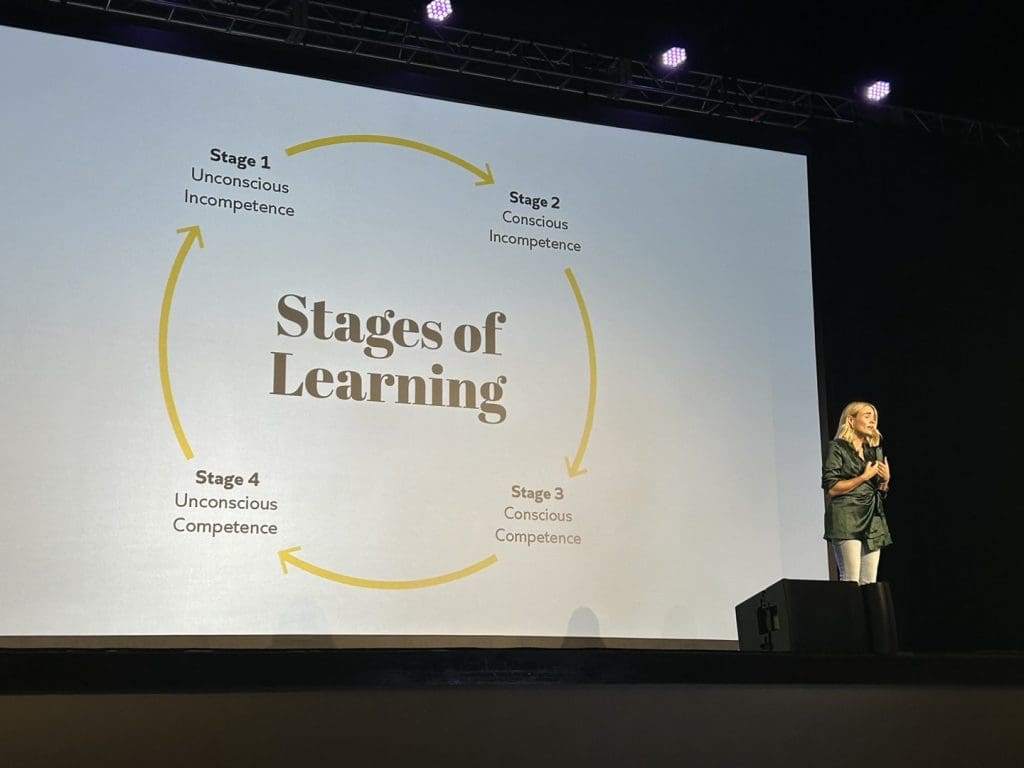
If you’ve been introduced at a speaking event before, you know that this short bio tends to briefly highlight your greatest accomplishments. Yet realistically, your journey includes a number of wrong turns and mistakes as well.
ELEVATE’s opening Main Stage session speaker Liz Forkin Bohannon, founder and CEO of Sseko Designs, a sustainable fashion brand, decided to share some of her less-than-stellar moments with the attendees.
One story occurred when she was living out of her car as she worked to launch her sandal brand. Bohannon had scheduled a meeting with the global head of supply chain for the brand Columbia. He had asked her about the cost of her raw materials, and when she gave an informed answer, he asked her where she got her information from.

The website was called Alibaba.com, but she pronounced it ‘a labia.com’ with complete confidence. He didn’t respond and when she asked if he’d used the site before, he quipped he tried to stay off websites like that. Bohannon did not realize her mistake until a little later. She said she ended up throwing away the shirt she wore that day as ‘No amount of Tide can remove the stench of humiliation.”
Another time she had a supply chain failure that resulted in her being trapped in an Ethiopian shoe factory. She has fondly dubbed these types of mistakes as ‘pluck ups’ and she argues there is so much you can learn from these sorts of mistakes.
Four Stages of Learning
Bohannon covered the four stages of learning and how while the second stage is the most uncomfortable stage of learning, it is also the most beneficial.
In stage one of learning, there is unconscious incompetence, which is where you simply don’t know what you don’t know. Stage two is conscious incompetence. This is the hardest stage of learning, as your ego is fragile as you try to develop your necessary skills.
The third stage is conscious competence, where you know how to execute a skill but require heavy concentration. The fourth stage is unconscious competence, where an ability comes so naturally it has become second nature.

She says while being at the fourth stage of learning can be a good feeling, knowing you are seen as a leader or an expert, it can also cause individuals to fall into the trap of being less creative. When you see yourself as an authority on a matter and become close-minded, this is known as the hypothesis of earned dogmatism.
Bohannon says that good leaders don’t approach learning as a ladder but rather a cycle where they continually move through the four stages of learning.
Dream Small
She encourages normalizing and channeling your inner beginner mindset. She covers this concept in-depth in her book, Beginner’s Pluck: Build Your Life of Purpose & Impact Now, but she shared two strategies during the keynote.
If you walk down a self-help aisle at a bookstore, you can’t help running across the message to ‘Dream big.’ However, Bohannon says she’s found this advice often makes those who are lost or struggling just feel more overwhelmed as they don’t know how to get started or if their dream is big enough.
She says that choosing to dream small helps you get started and is something beginners do naturally. Opting to dream small also eliminates some of the excuses that may prevent you from actually acting.
One exercise to help generate these small dreams is a ‘magic wand session.’ Set parameters for a specific problem and before anyone shares an idea, they need to say, ‘If I had a magic wand…’
Bohannon says that so many good ideas exist in the room, but your team members are often self-editing themselves based on various limitations. Assuming there is a magic wand frees them to share their big and wild ideas.
After sharing each idea, Bohannon says everyone should lean in and say, ‘Wow.’ Even when it’s required, it feels good and creates a collaborative energy.
Once you have your most compelling ideas, reverse the concept until it is broken down to the smallest aspect, and you have a list of actionable steps to take.
Creativity Over Criticism
Another mindset Bohannon covered was the value of choosing creativity over criticism. Your curiosity quotient (CQ) is more important than your IQ. This is because, unlike your IQ, your CQ is something you can increase.
She advises conducting an ‘If…then’ exercise to help grow your curiosity. One example of this is, ‘If I start to feel critical, then I will intentionally engage my curiosity.’ She says you can do this by no longer making statements and asking questions instead.
It’s okay to show up and not act like you’ve got it all figured out. While criticism, whether it’s internal or external, can hold you back, curiosity allows you to learn and grow.

